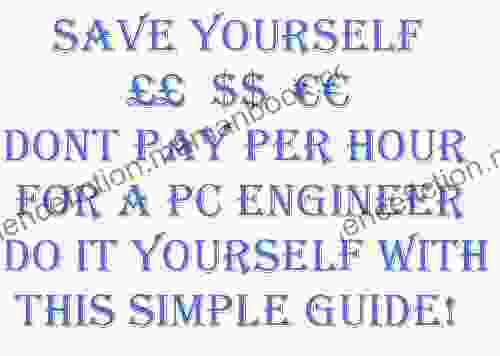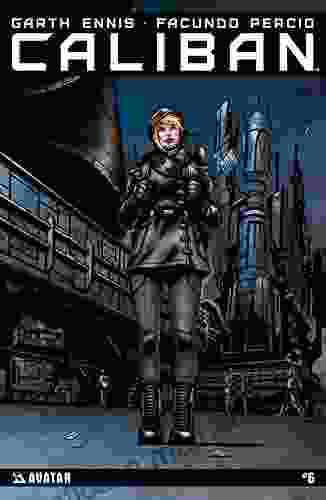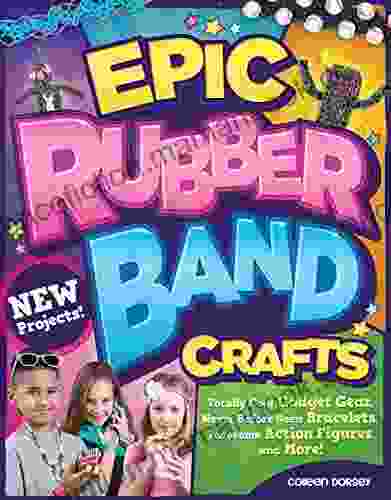The Ultimate Guide to Speeding Up and Cleaning Up Your PC or Laptop from Malware and Viruses

Is your PC or laptop running slow? Do you keep getting pop-ups or ads that you didn't ask for? There's a good chance that your computer has been infected with malware or a virus.
Malware is a type of software that is designed to damage or disable your computer. It can come in many forms, including viruses, spyware, adware, and ransomware. Malware can steal your personal information, track your online activity, and even take control of your computer.
5 out of 5
| Language | : | English |
| File size | : | 764 KB |
| Text-to-Speech | : | Enabled |
| Screen Reader | : | Supported |
| Enhanced typesetting | : | Enabled |
| Print length | : | 18 pages |
| Lending | : | Enabled |
Viruses are a type of malware that can replicate themselves and spread from one computer to another. They can attach themselves to files, emails, or websites, and when you open or click on them, the virus will infect your computer.
Malware and viruses can wreak havoc on your computer, making it slow, unstable, and vulnerable to attack. If you think your computer has been infected, it's important to clean it up as soon as possible.
Here's a step-by-step guide to speeding up and cleaning up your PC or laptop from malware and viruses:
1. Run a virus scan
The first step in cleaning up your computer is to run a virus scan. This will help you identify and remove any malware that may be present. There are a number of different antivirus programs available, so you can choose one that fits your needs and budget.
Once you've installed an antivirus program, run a full scan of your computer. This will take some time, but it's important to be thorough. Once the scan is complete, the antivirus program will provide you with a list of any malware that it has found.
2. Remove malware
Once you've identified the malware on your computer, you need to remove it. Most antivirus programs will allow you to do this with a single click. However, some malware may be more difficult to remove, and you may need to use a specialized removal tool.
If you're not sure how to remove malware, you can contact a computer repair technician or visit the website of the antivirus program that you're using.
3. Clean up your registry
The registry is a database that stores information about all of the hardware and software on your computer. Over time, the registry can become cluttered with old and unused entries, which can slow down your computer.
There are a number of different registry cleaners available, but you should be careful when using these programs. Some registry cleaners can actually do more harm than good.
If you're not sure how to clean your registry, you can contact a computer repair technician or visit the website of the registry cleaner that you're using.
4. Optimize your startup
When you start up your computer, a number of programs and services are automatically loaded into memory. This can slow down your computer, especially if you have a lot of programs installed.
You can optimize your startup by disabling unnecessary programs and services. To do this, open the Task Manager (Ctrl+Shift+Esc) and click on the "Startup" tab. This will show you a list of all the programs and services that are loaded at startup.
Disable any programs or services that you don't need. You can also delay the startup of some programs by clicking on the "Delay Startup" button.
5. Defragment your hard drive
A fragmented hard drive can slow down your computer because it takes longer for the computer to find the data it needs. Defragmenting your hard drive will help to improve performance by consolidating all of the data on the drive into one contiguous block.
To defragment your hard drive, open the Disk Defragmenter (type "defragment" into the Cortana search box). Select the drive that you want to defragment and click on the "Defragment" button.
6. Update your drivers
Drivers are software that allows your computer to communicate with hardware devices, such as your graphics card, sound card, and network adapter. Outdated drivers can cause performance problems, so it's important to keep them up to date.
You can update your drivers manually or you can use a driver update tool. If you're not sure how to update your drivers, you can contact a computer repair technician or visit the website of the hardware manufacturer.
7. Uninstall unused programs
Unused programs can take up space on your hard drive and slow down your computer. Uninstall any programs that you don't use anymore.
To uninstall a program, open the Control Panel (type "control panel" into the Cortana search box) and click on the "Programs and Features" link. This will show you a list of all the programs that are installed on your computer.
Select the program that you want to uninstall and click on the "Uninstall" button.
8. Clean up your temp files
Temporary files are created by programs and the operating system to store temporary data. These files can accumulate over time and take up space on your hard drive. Cleaning up your temp files can help to improve performance.
To clean up your temp files, open the Disk Cleanup tool (type "disk cleanup" into the Cortana search box). Select the drive that you want to clean up and click on the "Clean up system files" button.
This will open a new window that shows you a list of all the files that can be cleaned up. Select the files that you want to remove and click on the "OK" button.
9. Restart your computer
After you've cleaned up your computer, it's a good idea to restart it. This will help to finalize the changes and improve performance.
10. Monitor your computer
Once you've cleaned up your computer, it's important to monitor it for signs of infection. This will help you to catch any future malware or viruses early on.
Here are some things to look for:
* Slow performance * Pop-ups or ads that you didn't ask for * Changes to your browser settings * Unauthorized access to your personal information
If you notice any of these signs, it's important to run a virus scan and contact a computer repair technician or visit the website of the antivirus program that you're using.
By following these steps, you can speed up and clean up your PC or laptop from malware and viruses. Remember to monitor your computer regularly and take steps to prevent future infections.
5 out of 5
| Language | : | English |
| File size | : | 764 KB |
| Text-to-Speech | : | Enabled |
| Screen Reader | : | Supported |
| Enhanced typesetting | : | Enabled |
| Print length | : | 18 pages |
| Lending | : | Enabled |
Do you want to contribute by writing guest posts on this blog?
Please contact us and send us a resume of previous articles that you have written.
 Top Book
Top Book Novel
Novel Fiction
Fiction Nonfiction
Nonfiction Literature
Literature Paperback
Paperback Hardcover
Hardcover E-book
E-book Audiobook
Audiobook Bestseller
Bestseller Classic
Classic Mystery
Mystery Thriller
Thriller Romance
Romance Fantasy
Fantasy Science Fiction
Science Fiction Biography
Biography Memoir
Memoir Autobiography
Autobiography Poetry
Poetry Drama
Drama Historical Fiction
Historical Fiction Self-help
Self-help Young Adult
Young Adult Childrens Books
Childrens Books Graphic Novel
Graphic Novel Anthology
Anthology Series
Series Encyclopedia
Encyclopedia Reference
Reference Guidebook
Guidebook Textbook
Textbook Workbook
Workbook Journal
Journal Diary
Diary Manuscript
Manuscript Folio
Folio Pulp Fiction
Pulp Fiction Short Stories
Short Stories Fairy Tales
Fairy Tales Fables
Fables Mythology
Mythology Philosophy
Philosophy Religion
Religion Spirituality
Spirituality Essays
Essays Critique
Critique Commentary
Commentary Glossary
Glossary Bibliography
Bibliography Index
Index Table of Contents
Table of Contents Preface
Preface Introduction
Introduction Foreword
Foreword Afterword
Afterword Appendices
Appendices Annotations
Annotations Footnotes
Footnotes Epilogue
Epilogue Prologue
Prologue Angela Thayer
Angela Thayer Sade L Collins
Sade L Collins G Jay Westbrook
G Jay Westbrook John Railey
John Railey Wilborn Hampton
Wilborn Hampton F Marion Crawford
F Marion Crawford Brittany Reeder
Brittany Reeder Tony Prodger
Tony Prodger Robert De Graaf
Robert De Graaf Robert Fripp
Robert Fripp Taylor Sapp
Taylor Sapp Ivy Barrett
Ivy Barrett H L Carter
H L Carter Ben Macintyre
Ben Macintyre Chris Thomerson
Chris Thomerson James Naughton
James Naughton Dana Goldstein
Dana Goldstein Thomas Armstrong
Thomas Armstrong Ilan Bendelman
Ilan Bendelman Linda S Dowling
Linda S Dowling
Light bulbAdvertise smarter! Our strategic ad space ensures maximum exposure. Reserve your spot today!

 Brody PowellExploring Anton Chekhov's "The Cherry Orchard" through Hackett Classics: A...
Brody PowellExploring Anton Chekhov's "The Cherry Orchard" through Hackett Classics: A...
 Roger TurnerLone Bendixen Goulani: The Unforgotten Kurdish Girl Who Inspired American Aid...
Roger TurnerLone Bendixen Goulani: The Unforgotten Kurdish Girl Who Inspired American Aid... Devin RossFollow ·13k
Devin RossFollow ·13k George MartinFollow ·9.2k
George MartinFollow ·9.2k Caleb CarterFollow ·7.8k
Caleb CarterFollow ·7.8k Hayden MitchellFollow ·18.8k
Hayden MitchellFollow ·18.8k Mario SimmonsFollow ·14k
Mario SimmonsFollow ·14k F. Scott FitzgeraldFollow ·18k
F. Scott FitzgeraldFollow ·18k Everett BellFollow ·7.7k
Everett BellFollow ·7.7k David MitchellFollow ·11.1k
David MitchellFollow ·11.1k

 Ashton Reed
Ashton ReedClean(ish) Food for People Who Like to Eat Dirty
By: [Your Name] Are...

 Ronald Simmons
Ronald SimmonsThe Handbook for Educators: A Comprehensive Guide to...
The Handbook for...

 Derrick Hughes
Derrick HughesAny Place Hang My Hat: A Hauntingly Beautiful Novel by...
A Masterpiece of...

 Adrien Blair
Adrien BlairFly Me to the Moon Vol. 5: A Lunar Odyssey through...
In the vast...

 William Powell
William PowellTips By Gardeners On Variety Of Subjects
Gardening...
5 out of 5
| Language | : | English |
| File size | : | 764 KB |
| Text-to-Speech | : | Enabled |
| Screen Reader | : | Supported |
| Enhanced typesetting | : | Enabled |
| Print length | : | 18 pages |
| Lending | : | Enabled |










